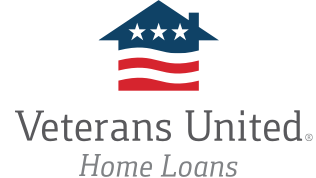Closing Costs for VA Home Loans
Having a solid understanding of the total amount of VA loan closing costs and non-loan related costs is an important figure to consider when buying a home.
Just as any mortgage loan does, VA loans come with certain closing costs — fees you’ll owe on closing day to the seller, your mortgage lender, the title company, and other parties involved in your transaction.
Fortunately, when it comes to closing costs, VA loans tend to be more affordable than other mortgage options — and in many cases, VA buyers can ask the seller to cover a large share of them.
What are VA Loan Closing Costs?
Closing costs are a collection of fees charged to a loan borrower. They go toward the costs of processing, underwriting, and issuing your mortgage loan, as well as things like appraising your property, recording your deed with the county, performing a title search, having an attorney review any legal documents, and many other tasks associated with your transaction. Local taxes are also included in closing costs.
Every borrower’s closing costs are different. They vary widely based on the loan amount, where you’re located, which lender you use, and many other factors.
Whatever your closing costs come to, they’ll be due on closing day — when you sign your final loan papers. They’re usually paid using a cashier’s check or wire transfer.
How Much are VA Closing Costs?
A number of fees fall under the closing cost umbrella, and while each one will vary based on your unique loan scenario, there are some general averages you can look to in order to estimate yours.
Here’s a look at these VA loan fees:
- Origination charge: This is the fee (or sometimes a collection of fees) your lender charges to originate your loan. Fortunately, the VA loan origination fee is capped at 1% of your total loan amount, so $2,000 on a $200,000 mortgage.
- Appraisal fee: This covers your property appraisal, which your VA lender uses to gauge the value of the home you’re buying or refinancing. This usually runs between $400 and $600.
- Title charges: There are various title fees you may be charged, including ones to perform title searches, secure title insurance, and more. Title fees are typically a few hundred each, while title insurance can be upwards of $1,000.
- Discount points: You can purchase points to lower your mortgage rate, usually for 1% of your loan amount each. These are optional and can be discussed with your lender ahead of time.
- Credit report: Your lender will pull your credit report as part of your application process. This usually clocks in between $25 and $75 per applicant.
- Well, septic and termite inspection fees: Depending on where you live and the property you’re buying, you may need certain inspections done on the property. These fees will vary based on the scope of the job, as well as local labor pricing. You can generally expect them to be between $300 and $500 each.
For an accurate breakdown of what your VA closing costs will look like, it’s important to review the loan estimate given to you by your mortgage lender. This will detail all the estimated costs you can expect, as well as how much cash you’ll need to bring to closing.
Non-Loan Closing Costs
You will also pay closing costs for non-loan related items — homeowners’ insurance premiums, county recording fees, HOA dues, and more. These vary based on your property, location, and various other factors.
Here are some examples of non-loan closing fees you may owe:
- Prepayment of your property taxes and homeowners insurance: You’ll need to pre-pay your estimated property taxes for the next few months, as well as your insurance premiums for the remainder of the year. You may also be asked to pay extra into your escrow account in case your final bills go over the estimated amount.
- Daily interest charges: Since you won’t make your first mortgage payment for a month or two down the road, you’ll need to pre-pay your interest charges for that period. This cost will vary based on your loan amount, your interest rate, and when in the month you buy.
- Recording fees: Each county charges specific fees to record mortgage documents and file them in the public record. These vary based on where you live.
- Homeowners Association (HOA) fees: If the home you’re buying is governed by an HOA, you’ll need to pay these dues — or at least a portion of them — at closing.
- Home warranty fees: Home warranties can help protect your home and its systems for the first year you’re in the home. These are optional and usually cost a few hundred dollars each.
In some cases, your real estate agent’s commission may be included in your closing costs, but these are generally paid for by the seller and are not included in the VA loan fees for buyers. Talk to your agent if you’re not sure how they get paid (or by whom).


